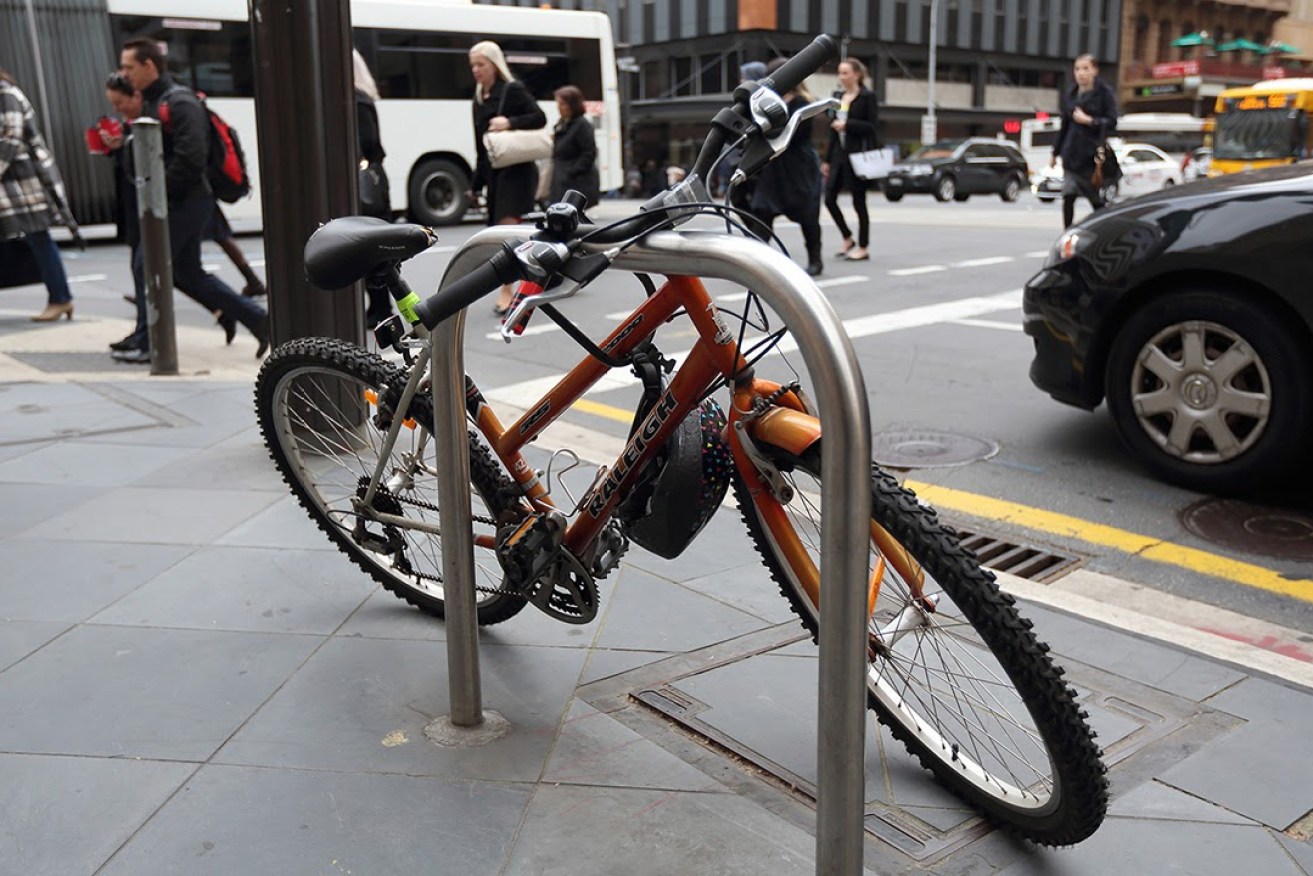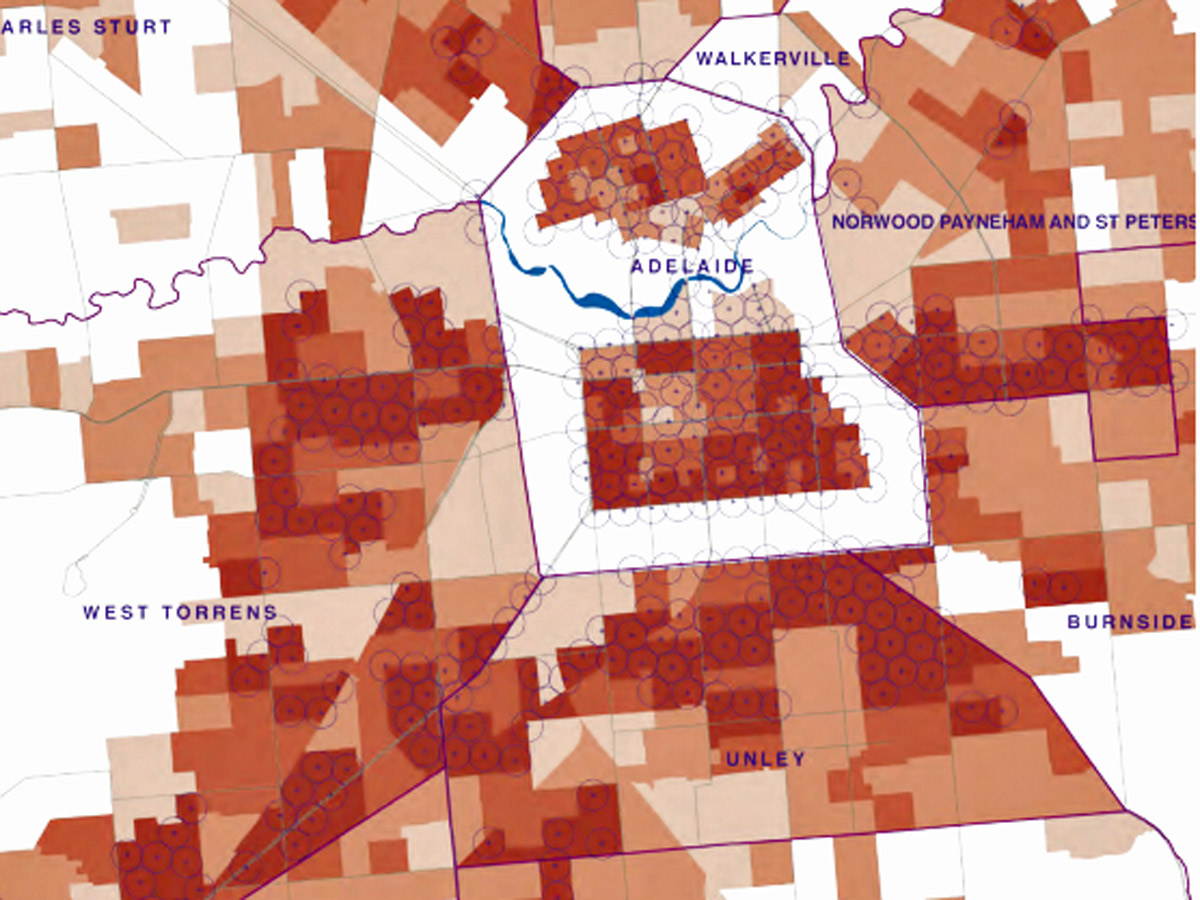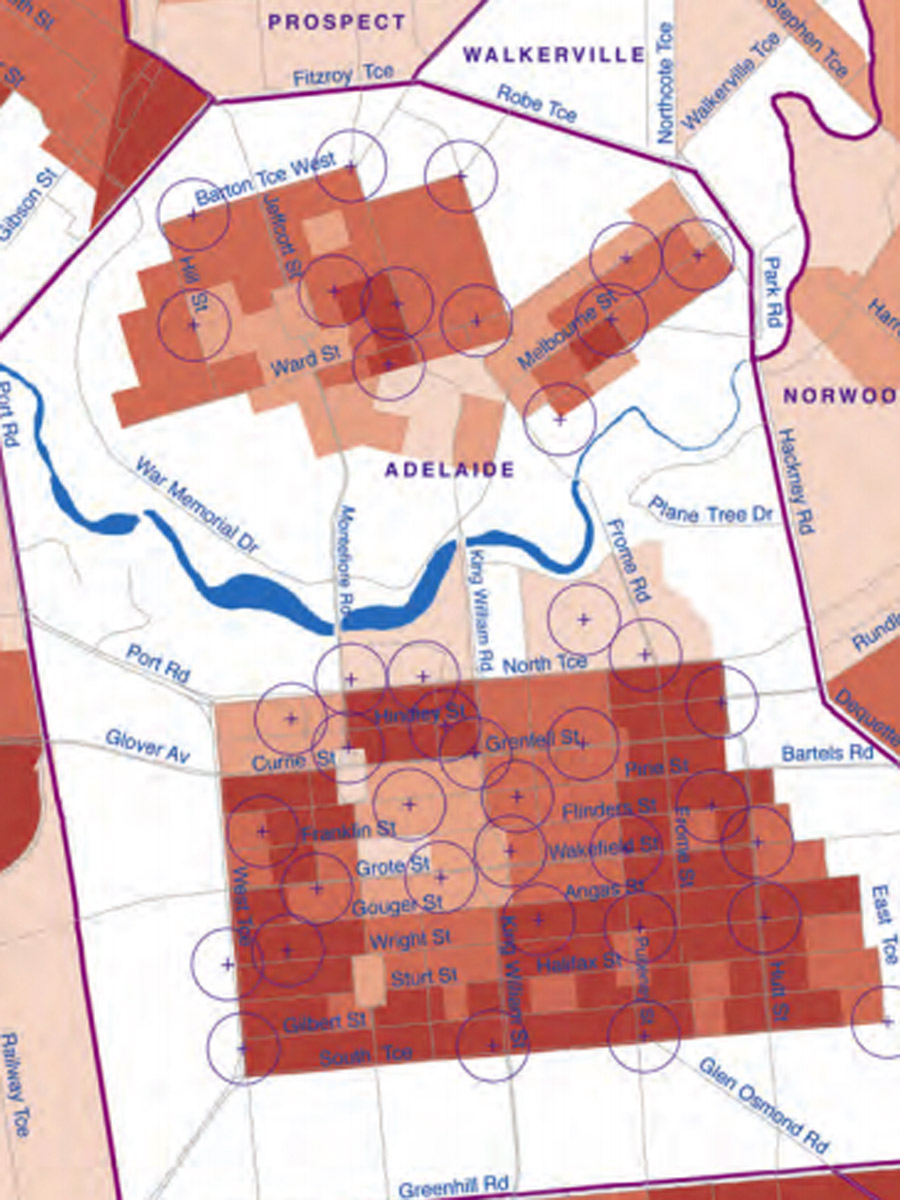Car culture, helmet laws threaten Adelaide bike-share scheme
Adelaide is far from ready for a large-scale bike-share scheme because of its cultural resistance to cycling, “immature” bikeways network and mandatory helmet laws, an expert report has found.


Photo: Tony Lewis / InDaily
The report also says that an ideal scheme could cost 21 times the $1 million allocated budget.
In July, the State Government and the Adelaide City Council announced a $12 million joint funding deal designed to make Adelaide “the cycling capital of Australia”.
Most of that money is set aside to overhaul and extend Frome Street Bikeway and establish a complementary east-west safe cycling route through the city.
The rest of the fund, $1 million, is to set up a new point-to-point public bike hire (or bike share) scheme. It would be designed to enable commuters to ditch the morning drive into work by hiring a bike at a docking station on a footpath close to their home, cycle into the city, and drop it off at another, conveniently located docking station located near to their workplace.
However, a council-commissioned report into the scheme has found that Adelaide is far from ready for such a scheme, and needs major cultural, legislative and infrastructure change – as well as a lot more cash – to implement one successfully.
The Institute for Sensible Transport report, presented to the council on Tuesday evening, warns that the plan may have to be abandoned if there is no change to mandatory helmet laws, and says the ideal bike-share scheme for Adelaide would cost between $9 million and $21 million.
But a change in helmet legislation is unlikely – at the announcement of the funding partnership earlier this year, Transport Minister Stephen Mullighan equated ending mandatory helmet laws to avoid ruining cyclists’ hair with ending seatbelt laws to keep shirts ironed.
The “optimal scheme”, according to the report, involves purchasing a fleet of more than 1600 bikes and building 324 docking stations, holding 10 bikes each – one every 300 metres across the city and inner-city suburbs. This would see each bike used between 1.5 and 2.5 times each day.

A map of the “optimal” $9 million to $21 million bike share scheme from the report. The circled plus signs indicate the proposed location for each docking station.
With the scheme envisioned under the current $1 million budget however taxpayers and ratepayers would buy 200 bikes, with 40 docking stations. No estimate as to the usage rate is offered in the report.

A map of what the report calls a “pilot” bike share scheme – limited by a budget of just over $1 million. It highlights the significantly lower number of docking stations.
A significant quantity of the ongoing cost of the “optimal” scheme would involve trucking hundreds of bikes from full docking stations to empty ones (so that city docking stations aren’t full by the time you arrive for work, and suburban docking stations aren’t full by the time you get home).
Dr Elliot Fishman, of the Institute for Sensible Transport, told InDaily: “For bike share [schemes to be successful] there needs to be a compelling value proposition.”
He said that currently, there did not “appear to be a strong value proposition” for people that live in suburban Adelaide to use a bike-share scheme – because of Adelaide’s car-centric culture, and because docking stations would be too far from home, although there was a strong appeal for some groups, especially tourists.
However, he said Adelaide could follow other cities by starting small and scaling up.
Fishman said mandatory helmet laws did not only discourage potential cyclists because they want to maintain their hair styles, but because – especially in hot weather – cyclists object to donning helmets that have already been worn that day.
While the council is aiming to launch the scheme by 2018, the report says it would have to wait until at least 2020 to launch it successfully.
The council on Tuesday evening endorsed a plan to allow its staff to work with the Department of Planning, Transport and Infrastructure on the scheme, retaining the objective of launching it by 2018.
South Ward Councillor Alex Antic, who dissented from the majority vote, argued that the council had become “obsessed with bicycles” and that the bike-share “idea may be very meritorious, but it’s way too soon”.
“We really are putting the cart before the horse,” he added.
Fishman told the meeting he believed the safe cycling infrastructure would have to be built before a bike share scheme could be implemented successfully – but South Ward councillor Priscilla Corbell suggested the projects could be implemented “concurrently”.
A bike share scheme, Adelaide Free Bikes, has been operating in the city since 2005 but, with its small scale, has been unable to operate as a comprehensive point-to-point scheme.
The council will reconsider the issue at a meeting next week.
You can read the ‘Options for Adelaide’ section of Institute for Sensible Transport report here. Further elements of the report are available here and here.




